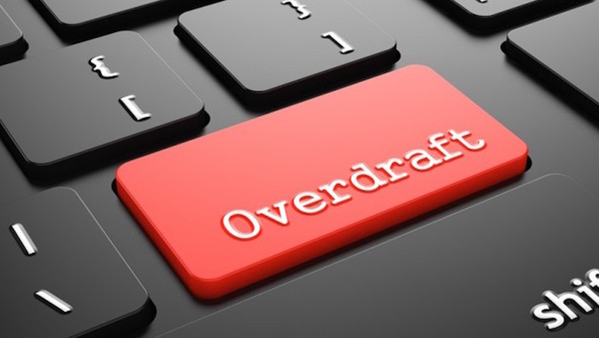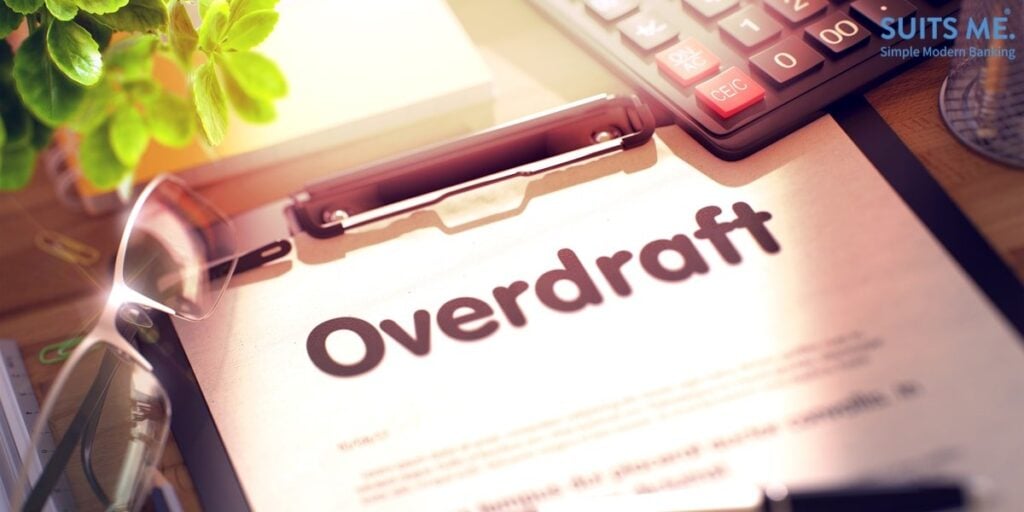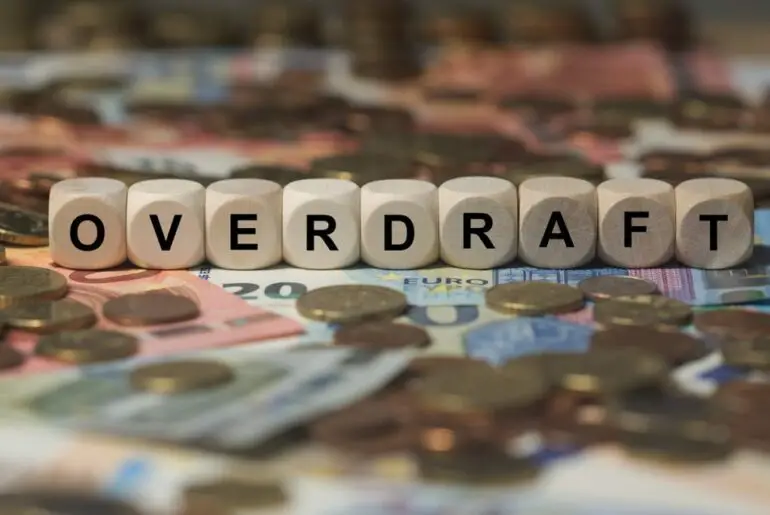Information presented on this web page is intended for informational and educational purposes only and is not meant to be taken as legal, financial, investment or tax advice. We do not accept any responsibility for any trading or investment related losses. Please review our disclaimer on before taking action based upon anything you read or see.
What happens if I can’t pay my overdraft? Many bank users usually ask this question today. If you are among this group, this article will assist you immensely. Come along!
An overdraft might be a handy way of lending money in the short term if you need to meet basic needs or cover unforeseen bills. However, before using your overdraft, make sure you understand everything about it. Understanding the ins and outs of an overdraft can allow you to pay interest as little as possible, if not none at all.
Definition of an Overdraft

An overdraft is a current account loan that allows you to borrow money. If you withdraw money or make an expenditure that lowers your available amount, you’ll be in overdraft.
To put it another way, if the balance falls below $0, you’ve reached your overdraft limit. An arranged overdraft is when you and your bank or lender agree on a specific overdraft limit.
You should be aware that you may be charged a fee if you use it. Some current accounts include a pre-arranged overdraft. Others don’t, so you’ll have to contact your bank to get one. A scheduled overdraft is not available to all bank accounts.
What Happens If I Can’t Pay my Overdraft?
/GettyImages-965235900-5bc91cc4c9e77c00518c7a64.jpg)
Overdrafts, like other bank accounts, are recorded on your credit report. That implies a record of the amount you owe on your overdraft and retained payment history.
At the same time, overdrafts don’t usually have monthly payments. If you’ve kept your account in excellent order and within your limit, the record will reflect that everything is well. In case, you don’t pay your overdraft, your institution will file a credit report on you.
If you have had an unplanned overdraft for a long time, the bank may default on your account, which will be documented on your file for six years.
Is it a Good Idea to Expand my Overdraft?

Raising your overdraft may appear to be a quick fix, but it’s only a good choice if you have a plan in place to clear the overdraft and regain credit. According to our research, many consumers become trapped in a cycle of going overdrawn, making it a risky game to play. If you’re having challenges staying within your budget, it could be a sign that you need debt help.
How to Get Out of an Overdraft

If you can’t pay your overdraft, as previously said, the repercussions are usually severe. As a result, it’s necessary to make efforts to eliminate overdrafts. Below are some steps to take in this regard:
Make a financial plan
Assembling a listing of your wage and expenses might have a significant influence on your financial status. You won’t be able to manage your funds until you realize how much funds is arriving and going out.
After you’ve made plans, you’ll be able to figure out how much money you’ll need for utilities, lifestyle expenditures, and debt payments. If you have the funds to pay off your excess each month, this must inform you. It may also help you organize so that you are least prone to get into debt.
Speak with your financial institution.
Many individuals are reluctant to call their institution to inform them that they are experiencing financial troubles, but there is nothing to be afraid of. The seasons of requesting a pardon from the institution manager like a bad student are gone forever. You may contact most institutions via telephone, mail, live chat, or in reality.
In any communication with them, you may express your worry about being overdrawn all of the moment and your desire to step down your overflow. Solicit their support.
The attitude of your institution will differ, and if you’ve made a budget, you’ll have a clearer notion of whatever you could provide as a real payback. You can query them to lower your credit limits by a sum you can pay monthly, and you’ll be able to repay the loans over time.
Keep your loan and regular savings separate.
Working to settle an overflow while continuing to use it monthly is equivalent to blowing out a boat that is still bringing in more water. It’s advisable to keep your overdraft debt distinct from your normal banking at this time. Your bank may be able to help you start a new account with them.
You’ll be able to stop the pattern of repeatedly slipping through your overspend if you do this. It’s simple to keep track of your spending and manage your overdraft as if it were any other loan.
Establish a new account with a bank with that you have zero liabilities if your institution is unable to distinguish your excess liability from the major account. You can transfer your earnings and control your everyday spending with this different account.
Your previous checking account will remain overspent, but you’ll be capable of paying it off like every debt, and it’ll be kept apart from the remainder of your money.
Reduce your outstanding balance as soon as possible.
That’s the most challenging aspect. In actual life, planning ahead is considerably simpler than adhering to it. Adhering to your budgeting and completing your payments on time each quarter can help you achieve your goal. It won’t be as easy initially, but you’ll be increasingly driven whenever you find your balance develops.
Unforeseen occurrences may make staying within your budgeting, but a sensible strategy can help you prepare for the majority of them. As a result, it is vital to endeavour to account for all eventualities while constructing a budget.
Frequently Asked Questions
What occurs if I can’t pay my overdraft?
When you fail to clear your overdraft, your financial institution may submit a credit report on you. If you have had an unplanned overdraft for a long time, the bank may default on your account, and it would be documented on your records for 6 years.
Is it possible to receive an overdraft if you have a negative credit history?
Yes. Banks often review your credit record when you request for an overspend, and any unfavourable entries on your file might lead to your request being refused or restricted to a little overdraft. Assume you’ve had a long relationship with your banking institution.
In such instances, they’re inclined to look at the way you’ve controlled your account over time, which may work in your favour if your account evidence tells you are prudent financially.
How long does it take to repay an overdraft?
How long does a piece of rope have to be? This may not be the best answer, but it demonstrates one of the most common overdraft problems. Overdrafts usually do not have a set repayment since you are not compelled to return a specified quantity as long as you pay the percent and any fees.
Your overrun may seem to be wiped monthly when your funds come, but you haven’t actually cleared it if you use it to support your day-to-day obligations. To repay an overdraft debt, you’ll need discipline and dedication to follow the instructions above.
Is it possible to get my bank to repay my overdraft fees?
Yes. If you believe your institution put wrong charges to your checking account, you can request a refund. If requesting a refund fails, you can file a complaint with the bank. They’ll look into it and respond in eight weeks, and it’s also much sooner.
What is the procedure for repaying an overdraft?
If you use your overdraft to borrow money, the faster you pay back, the less interest you’ll pay. You can repay your overdraft by transferring funds from your checking account to your current account.
Even if you can’t pay it off in full right away, transferring what you can currently afford will help you save money on interest. This is valid, as interest is calculated based on your daily balance.
Is it possible to cancel or lower my overdraft limit?
Yes. Suppose you agree to an organized overdraft and later change your opinion. You can cancel or lower my overdraft limit. In that case, you have 14 days from the starting date or the day you obtained a copy of your overdraft agreement to cancel it (whichever is later).
You can also request that your limit be reduced or that your scheduled overdraft limit be removed at any time. Any overdraft and any interest accrued during the time you had it must be repaid.
What measures should you take to get out of an overdraft?
Here are a few considerations if you wish to get out of an overdraft debt:
- Make a financial plan
- Speak with your bank
- Keep your overdraft separate from your regular banking.
- Begin paying down your overdraft balance.
Conclusion
In conclusion, overdrafts come with diverse merits. On the other hand, there are usually consequences if you can’t pay your overdraft. To this end, the tips above will aid you immensely.




